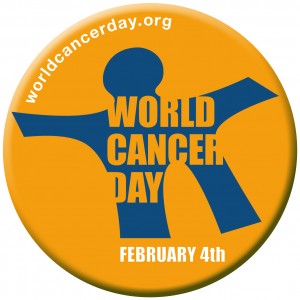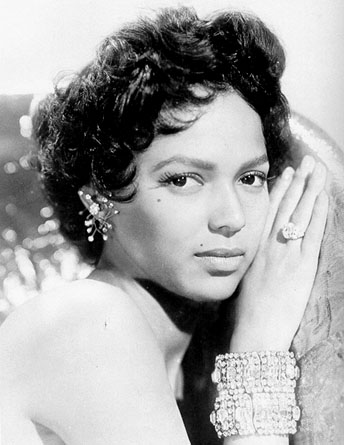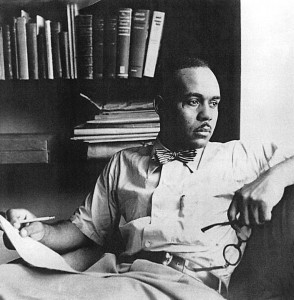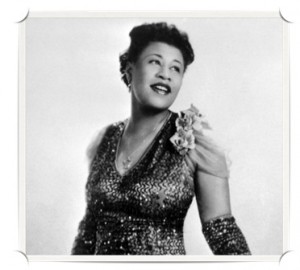“Do you have an opinion? A mind of your own? I thought you were special… I thought you should know.”
books, comics and animation, computers, dining and cuisine, event, everyday glory, family and friends, food for thought, games, health, history, house and home, movies and TV, music, news and info, Whiskey Tango Foxtrot...?! February 4th, 2011Friday – 04 February 2011
It’s my 9/80 day off. Amen.
Today is also World Cancer Day.
Last night, Mary and Matt came over for dinner. SaraRules! made breaded pecan chicken strips, scalloped potatoes and a zucchini/squash mix for dinner. Mary and May brought a cake for dessert. Dinner, the company and the conversation were all very good. After our company left, I finished reading this week’s four-color haul and played a little (a very little) DCUO before calling it a day.
Chew on This: Food for Thought – Black History Month
Since it’s the weekend, and it’s going to be “a little” busy, you’re getting THREE entries:
- Dorothy Jean Dandridge was an American actress and popular singer, and was the first African-American to be nominated for an Academy Award for Best Actress.
She performed as a vocalist in venues such as the Cotton Club and the Apollo Theater. In 1954, she was nominated for an Academy Award for Best Actress and a BAFTA Award for Best Actress in a Leading Role for Carmen Jones. By 1956, still under contract to Fox, Dandridge hadn’t made any films since Carmen Jones. Fox still believed that Dorothy was a star, but just didn’t know how to promote her. One of the head chiefs at Fox once said “She’s a star, but we don’t have any films to put her in or leading men to cast her opposite.”
In 1957 Dorothy’s luck came back when Darryl F. Zanuck cast Dandridge as Margot, a restless young Indian woman, in his controversial film version of, Island in the Sun, co-starring stars such as Joan Fontaine, James Mason, Harry Belafonte, Joan Collins, Michael Rennie, and Stephen Boyd. This film was a success which brought Dandridge back to the public eye. Determined to reinvent her career, she decided to wait on Fox to call for her to make a film.
In 1959, Columbia Pictures cast Dorothy in the lead role of Bess in Porgy and Bess; Dorothy was again nominated for a award, this time for a Golden Globe Award for Best Actress – Motion Picture Musical or Comedy. Dorothy was again eager to see if she was to win the award, but she once again lost. A few weeks later Dorothy was released from her 20th Century Fox contract.
Dandridge was married and divorced twice, first to dancer and entertainer Harold Nicholas (the father of her daughter, Harolyn Suzanne) and then to Jack Denison. Dandridge died of an accidental drug overdose, at the age of 42.
- Ralph Waldo Ellison was a novelist, literary critic, scholar and writer.
Ralph Ellison, named after Ralph Waldo Emerson, was born in Oklahoma City, Oklahoma to Lewis Alfred Ellison and Ida Millsap.In 1933, Ellison entered the Tuskegee Institute on a scholarship to study music. Tuskegee’s music department was perhaps the most renowned department at the school, headed by the conductor William L. Dawson. While he studied music primarily in his classes, he spent increasing amounts of time in the library, reading up on modernist classics.
During World War II, Ellison joined the Merchant Marine, and in 1946 he married his second wife, Fanny McConnell. She worked as a photographer to help sustain Ellison. From 1947 to 1951 he earned some money writing book reviews, but spent most of his time working on Invisible Man. Fanny also helped type Ellison’s longhand text and assisted her husband in editing the typescript as it progressed.
Published in 1952, Invisible Man explores the theme of man’s search for his identity and place in society, as seen from the perspective of an unnamed black man in the New York City of the 1930s. In contrast to his contemporaries such as Richard Wright and James Baldwin, Ellison created characters that are dispassionate, educated, articulate and self-aware. Through the protagonist, Ellison explores the contrasts between the Northern and Southern varieties of racism and their alienating effect. The narrator is “invisible” in a figurative sense, in that “people refuse to see” him, and also experiences a kind of dissociation. The novel, with its treatment of taboo issues such as incest, won the National Book Award in 1953.
In 1964, Ellison published Shadow and Act, a collection of essays, and began to teach at Rutgers University and Yale University, while continuing to work on his novel. The following year, a survey of 200 prominent literary figures was released that proclaimed Invisible Man the most important novel since World War II.
Ralph Ellison died on April 16, 1994 of pancreatic cancer, and was buried at Trinity Church Cemetery in the Washington Heights neighborhood of New York City.
- Ella Jane Fitzgerald, also known as the “First Lady of Song” and “Lady Ella,” was an American jazz and song vocalist.
Fitzgerald was born in Newport News, Virginia. In her youth Fitzgerald wanted to be a dancer, although she loved listening to jazz recordings by Louis Armstrong, Bing Crosby and The Boswell Sisters. She idolized the lead singer Connee Boswell, later saying, “My mother brought home one of her records, and I fell in love with it….I tried so hard to sound just like her.”
She made her singing debut at 17 on November 21, 1934 at the Apollo Theater in Harlem, New York. She pulled in a weekly audience at the Apollo and won the opportunity to compete in one of the earliest of its famous “Amateur Nights”. She had originally intended to go on stage and dance but, intimidated by the Edwards Sisters, a local dance duo, she opted to sing instead in the style of Connee Boswell. She sang Boswell’s “Judy” and “The Object of My Affection,” a song recorded by the Boswell Sisters, and won the first prize of $25.00.
In January 1935, Fitzgerald won the chance to perform for a week with the Tiny Bradshaw band at the Harlem Opera House. She met drummer and bandleader Chick Webb here. Webb had already hired singer Charlie Linton to work with the band and was, The New York Times later wrote, “reluctant to sign her….because she was gawky and unkempt, a diamond in the rough.” Webb offered her the opportunity to test with his band when they played a dance at Yale University.
She began singing regularly with Webb’s Orchestra through 1935 at Harlem’s Savoy Ballroom. Fitzgerald recorded several hit songs with them, including “Love and Kisses” and “(If You Can’t Sing It) You’ll Have to Swing It (Mr. Paganini)”. But it was her 1938 version of the nursery rhyme, “A-Tisket, A-Tasket”, a song she co-wrote, that brought her wide public acclaim.
With Decca’s Milt Gabler as her manager, she began working regularly for the jazz impresario Norman Granz, and appeared regularly in his Jazz at the Philharmonic (JATP) concerts. Fitzgerald’s relationship with Granz was further cemented when he became her manager, although it would be nearly a decade before he could record her on one of his many record labels. Fitzgerald left Decca and Granz, now her manager, created Verve Records around her. Fitzgerald later described the period as strategically crucial, saying, “I had gotten to the point where I was only singing be-bop. I thought be-bop was ‘it,’ and that all I had to do was go some place and sing bop. But it finally got to the point where I had no place to sing. I realized then that there was more to music than bop. Norman….felt that I should do other things, so he produced The Cole Porter Songbook with me. It was a turning point in my life.” Ella Fitzgerald Sings the Cole Porter Songbook, released in 1956, was the first of eight multi-album Songbook sets Fitzgerald would record for Verve at irregular intervals from 1956 to 1964. The composers and lyricists spotlighted on each set, taken together, represent the greatest part of the cultural canon known as the Great American Songbook. Fitzgerald’s song selections ranged from standards to rarities and represented an attempt by Fitzgerald to cross over into a non-jazz audience.
Plagued by health problems, Fitzgerald made her last recording in 1991 and her last public performances in 1993. Miss Fitzgerald was generous throughout her career, and in 1993, she established the Charitable Foundation that bears her name: The Ella Fitzgerald Charitable Foundation, which continues to help the disadvantaged through grants and donation of new books to at-risk children.
Stray Toasters
- MarknTyme sent me a link to an article about a “skin gun,” used as a treatment for burn victims. The accompanying video isn’t for the squeamish… but the results are rather impressive.
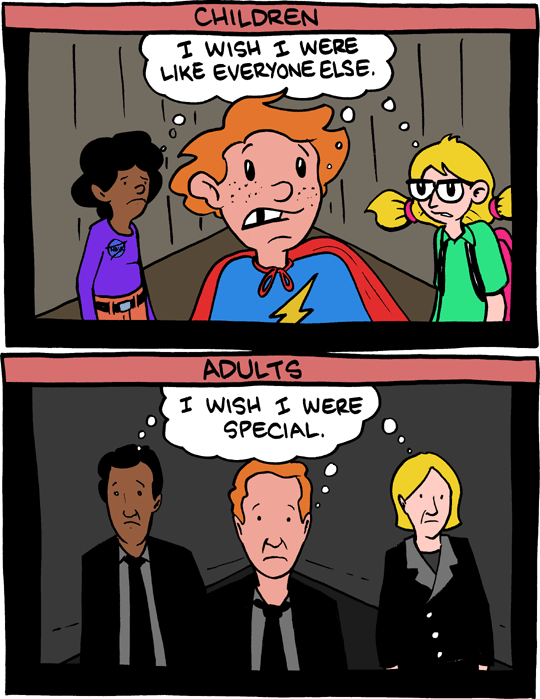
- A Super Bowl oddity: No cheerleaders for Packers or Steelers
- No Easy Fixes as Internet Runs Out of Addresses
- Today in rock ‘n’ roll history: The day the music died

- Gunman hijacks Greyhound bus in North Carolina
- The King of Cool’s Motorcycle Is for Sale
- Yesterday’s amazing house of tomorrow is today’s boring house of today
And, on to the day!
Namaste.
Leave a Reply
You must be logged in to post a comment.

